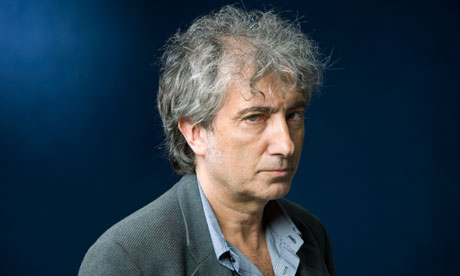
Back in 1890, when the "science of mind" was fresh and new, it captured the imagination of a vast range of thinkers: philosophers, alienists, neurologists, psychologists, as well as the new human or social scientists. The great William James, who named the field and was the first to talk of the "stream of consciousness" of subjective life, also noted in his Principles of Psychology: "Perhaps the greatest breach in nature is the breach from one mind to another."
The passage of 120 years has done little to help us leap that breach or to make the subjective life transparent. But in the wake of a period of rampant individualism, with its noisy excess of desiring, getting, and spending, the scientists of mind, in all their initial broad range, are once more trying. They want to assert that "selfishness" is not what humans are about in genes or teams, and that happiness needs redefinition. Attempting to explain us better to ourselves, they remind us that without other minds, there wouldn't be what only seem to be our own in the first place.
Adam Phillips, that master of paradox and the quotable sentence, is also one of very few British psychoanalyst-philosophers. In Missing Out: In Praise of the Unlived Life (Hamish Hamilton £20), he muses on our unlived lives, the ones that shadow us with their lost delights, and wonders whether frustrations may not make us better able to live our pleasures than do seeming satisfactions. Greed, he notes in a parenthesis, is "despair about pleasure".
In The Shrink and the Sage (Icon £9.99) philosopher Julian Baggini and his partner, psychotherapist Antonia Macaro recombine two fields that had grown distant to ponder what might make the good life and breach gaps. Aristotle's "mean" sets the tone. Meanwhile Oliver Burkeman, in The Antidote (Canongate £15), steers us away from the tacky horrors of positive thinking. After a bout of George Bush at the raucous Get Motivated! Seminar in Texas, he travels through the hidden benefits of insecurity to the museum of failure, finally to embrace mortality in Mexico. Somewhere along the way I like to imagine he bumped into Susan Cain, whose Quiet (Viking £14.99) sings the power and delights of introversion in a raucous world.
In Together (Allen Lane £25), the second book in his homo faber trilogy, the ever-rewarding Richard Sennett digs into history and examines the cooperative skills we humans possess. In groups or tribal collectivities, solidarity that insists on everyone's being in agreement won't provide the necessary glue. Sennett wants both to allow complex differences and engender cooperation through a craft of togetherness that includes listening, working and ritual gatherings.
The American trend for long books filled with mountains of data in support of provocative hypotheses continues. Steven Pinker, in The Better Angels of Our Nature (Penguin £12.99), energetically argues that we've grown more civilised and less violent than our prehistoric, certainly pre-Hobbesian, forebears – something I've long wanted to believe but found it hard to while rockets, bombers and drones do their worst.
Jonathan Haidt is another Darwinian, this time a social and cultural psychologist, whose interests in The Righteous Mind (Allen Lane £20) are political, as well. Digging for the genesis and workings of morality in humans, he turns in this adventurous book to tribal life and animal behaviour, as well as the ancients and American politics. The rider on the elephant is his metaphor for the divided human mind, the first being our strategic reasoning; the much larger second all the other mental processes "outside of awareness but that actually govern most of our behaviour". It's odd that American psychologists seem to have forgotten that Freud too read Darwin, and so keep having to reinvent the unconscious. Our morality comes from the elephant, is instinctive and tribal, binds and blinds, and easily turns into the moralising that ever makes us "righter" than them. Is it possible to get Democrats and Republicans to breach the gap? I wasn't convinced, but maybe Haidt and Sennett should get together.
In the fascinating Beyond Human Nature (Allen Lane £22), Jesse J Prinz shows how on most of the points on which evolutionary psychologists like to reflect, humans are shaped far more by their culture than by nature. Examining knowledge, language, thinking, feeling and values, Prinz shows that people from different cultures perceive differently, are driven to, and suffer, mental illness in various ways, and find a wide range of mating partners attractive, until globalised values arrive to standardise taste.
And so to love and mating, perhaps the best way to bridge the great gap of separate minds, let alone bodies. If you prefer your wooing with data – on hunter gatherers, voles and the neurohormone oxytocin – then Robin Dunbar's The Science of Love and Betrayal (Faber £12.99) is for you. Alternately, if you want the complexities of love in a family story that comes in bold graphic form and contains a host of psy-knowledge and Winnicottian lore, then Alison Bechdel's comic drama Are You My Mother? (Jonathan Cape £16.99) is pure bliss.

